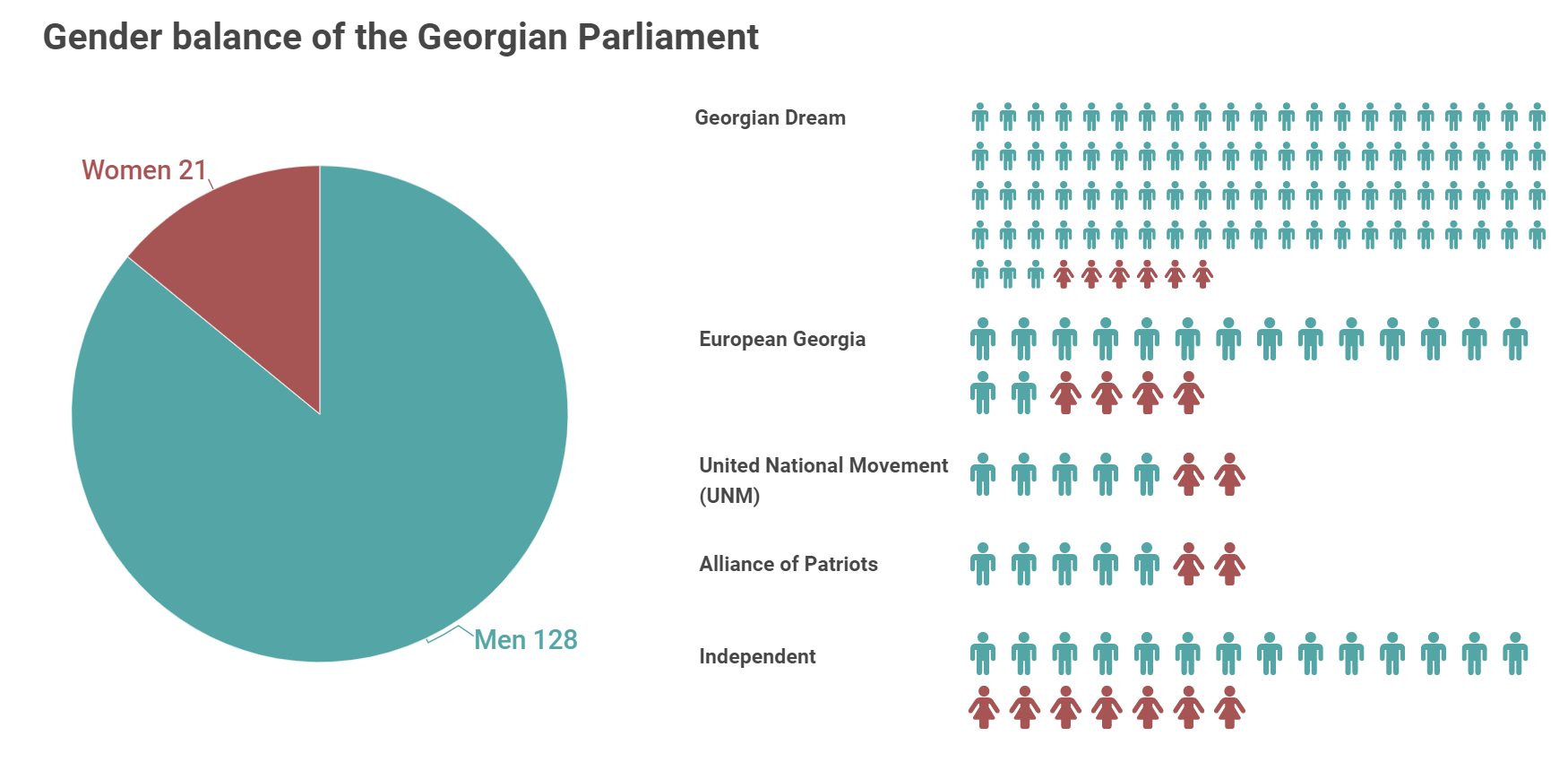Georgian Dream nominates just one woman as majoritarian for parliamentary elections

The ruling Georgian Dream Party has picked only one woman to run as a majoritarian candidate in October’s parliamentary elections, out of 30 candidates.
The party unveiled their list of candidates to run in the country’s 30 majoritarian districts on Monday morning.
Nino Latsabidze, currently a member of the Tbilisi City Council (sakrebulo), will run in the Rustavi-Gardabani District.
‘Nino has long managerial experience in public service, is an active member of the Tbilisi City Council, and most importantly, she successfully combines all this with being mother of four’, Irakli Kobakhidze, Georgian Dream’s Executive Secretary, said while presenting her candidacy.
Nino Latsabidze’s official biography does not mention any connections with Rustavi.
No other party has yet released a full list of majoritarian candidates.
Among those running in Tbilisi are Davit Sergeenko, the former health minister who was touted for the ministry’s hepatitis C elimination programme, and Sozar Subari, who has occupied two cabinet positions since 2012 before becoming the prime minister’s adviser on regional development.
In late June, amidst a boycott of parliament by opposition groups European Georgia and the United National Movement, Georgian Dream lawmakers changed the country’s electoral system reducing the number of majoritarian seats from 73 to 30.
[Read more on OC Media: Georgia transforms electoral system ahead of October parliamentary elections]
Among other changes introduced, the reforms also introduced gender quotas for parties’ proportional lists, mandating that every fourth candidate be of a different gender.
The gender requirement did not concern majoritarian candidates.

On 1 July, parliamentary majority leader Mamuka Mdindaradze bragged that there was ‘practically no difference of opinion’ on gender quotas among their ranks while discussing the recent amendments.
In the previous parliamentary vote, in 2016, Georgian Dream put forward five women out of 72 candidates — over double the ratio of the 2020 list. Georgian Dream did not nominate a candidate in Tbilisi’s Mtatsminda District in 2016, where then independent candidate and now president Salome Zurabishvili won.
‘The presented list is yet more proof that without special measures, it is not imaginable to change the status quo in Georgian politics,’ Ida Bakhturidze, a Georgian feminist activist, told OC Media.
‘It is regretful that the Georgian Dream Party — who are the authors of legislative amendments on gender quotas — failed to uphold their own initiative and will field women candidates no more than is required by law: 30 women, and also one majoritarian woman candidate.’
‘Without mandatory quotas, we would see even fewer women in parliament than we have now because the circumstances have limited the number of parliamentary mandates further,’ Bakhturidze added. ‘This increased competitiveness [for majoritarian seats], on the background of the existing political culture which does not prioritise competence when selecting candidates, creates ever more barriers for women’s political participation.’









